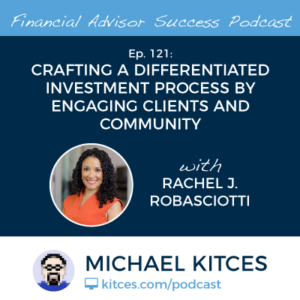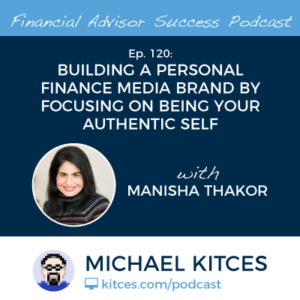Enjoy the current installment of "weekend reading for financial planners" – this week's edition kicks off with a release from the CFP Board of their new "Roadmap" guide on what CFP professionals must do to comply with the new Code of Ethics and Standards of Conduct taking effect in October... and trying to clarify the confusing separation that the CFP Board has created between "financial planning" and non-financial-planning "financial advice," both of which are subject to a fiduciary duty, but which have different Practice Standards and very different disclosure obligations to clients. Also in the news this week was the announcement that Schwab has put its new Portfolio Connect solution into general release, providing an entirely free portfolio performance reporting and billing solution for advisory firms... at least, for the ones that are willing to bring 100% of their assets to Schwab (as Portfolio Connect is not multi-custodial).
From there, we have a number of articles around client communication, including a look at how to better talk to clients about money (and why it's so important to recognize that there's no one "right" solution to solve someone's financial issues), an interesting mental model to consider your own communication style as an Explainer (focused on knowledge), an Elucidator (focused on understanding), or an Enchanter (focused on wisdom), a behavioral finance discussion about why storytelling is so compelling to us as humans (to the point that we'll make up a narrative just to explain the facts around us), and why it's so hard for us to talk about money in the first place (hint: it's often used as a status symbol, which makes it impossible to talk about money without talking about the sensitive issue of our personal perception of our own status in society).
We also have several articles on marketing, including a powerful reminder that it's often impossible to get someone to sign up for comprehensive financial planning services when they have a pressing problem to solve (until/unless you agree to a more limited-scope engagement to solve that problem first), how to increase your conversion rate with prospects by focusing on how to make it easier for your prospects to engage you in the first place, and some good reminders about the importance of etiquette in building trust with clients (including why it's really important to actually say "You're Welcome" when someone says "Thank You" to you!).
We wrap up with three interesting articles, all around the theme of how pervasive technology is becoming in our lives: the first looks at how the pace of disruptive innovation, especially from large tech companies, is creating a backlash against the "move fast and break things" philosophy and towards an era where companies are expected upfront to not only build solutions for customers but also consider how they'll remain accountable for their solutions not being used in harmful ways; the second is a look at how, with recent discussions of income inequality and the societal risks of mass unemployment due to automation, company executives are publicly downplaying their efforts towards artificial intelligence... even as they invest heavily into it anyway, if only because they're terrified that if they don't, a competitor will do so and disrupt them anyway; and the last looks at the rise of new technology companies like Sift and SecureAuth that are gathering data about all of our online activities in order to create a new kind of "trust score" that verifies whether we're a “normal” human, a malicious bot, or a fraudster, except that unlike a credit score, consumers don't have access to their trust scores (raising concerns about what happens when technology “scores” us unfavorably and limits our ability to use modern technology and websites, and we have no way to know, much less fix the situation)... even as some companies are finding that the tools may be reducing costs by making it easier to link together data across the internet to identify and eliminate fraudulent activity, and make the internet more trustworthy in the process?
Enjoy the "light" reading!

 Welcome back to the 121st episode of Financial Advisor Success Podcast!
Welcome back to the 121st episode of Financial Advisor Success Podcast! Welcome back to the 120th episode of Financial Advisor Success Podcast!
Welcome back to the 120th episode of Financial Advisor Success Podcast!
